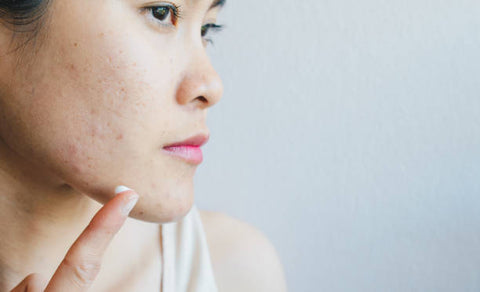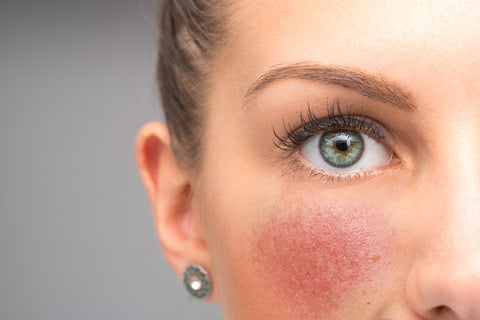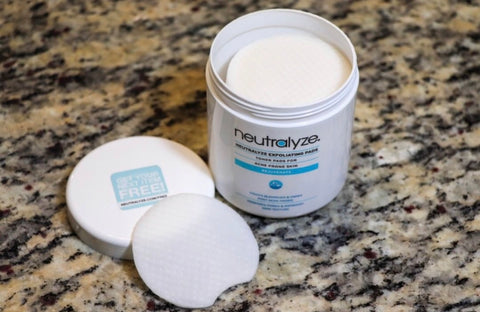More Than Skin Deep: The Emotional Effects of Acne

It’s widely known that acne affects almost everyone and that most go through this condition during their teenage years. In fact, approximately 85% of people develop acne between the ages of 12 and 25. For some, the condition persists well into adulthood.
Many believe that the severity of acne is influenced by hormonal changes caused by puberty, stress, and the environment. Even studies have been conducted to provide a valid basis for these claims. Thus, we’ve often been advised to avoid stress and pollutants to help prevent acne. However, unlike puberty and the environment, the correlation between emotions and acne goes both ways, with each one affecting the other.
If you or your teenagers are suffering from acne, it’s important to understand how emotions play a factor in the occurrence of acne and vice-versa. This will help you find ways to alleviate the condition and cope with the challenges it brings about so you can improve your way of life.
How Emotions Affect Skin
You know how everyone tells you that you look radiant when you are in a good mood? Well, this is because our emotions affect our skin appearance. This is quite similar to when your face turns blush-red when someone you like makes you feel giddy.
But just as positive emotions have positive effects on your skin condition, negative emotions can bring about negative effects as well. It can be something as mild as having dull-looking skin or something more severe like acne. When you’re stressed, your body releases cortisol. This hormone can increase moisture loss and slow cell renewal, which results to dry flaky skin. At high levels, it breaks down collagen, triggers inflammation, and increases sebum production. So when you’re stressed for long periods, this hormone can also trigger acne breakouts.
Emotional and Psychological Effects of Acne
With most acne developing during puberty, the changes that teens go through are compounded by blemishes and scars. Acne not only affects their physical appearance but also impacts their emotional health. Even in adults, acne can have severe emotional and psychological effects.
Skin ailments are near impossible to hide. When we have them on our face, we know that the whole world sees them. This causes an intense emotional impact, as well as a surge in our stress levels. It influences our mental and psychological health in many ways.
Low Self Esteem
Acne can be a challenge to cover up, especially severe acne. It affects self-esteem and makes people feel self-conscious. Not to mention, some people can be highly critical of others when it comes to skin blemishes. Because of these factors, some might avoid social interactions just so they will not be bullied or shamed about not having perfect skin. For teens, this is a big blow to their esteem and leads to loss of confidence. As a result, they tend to withdraw from society or exhibit some behavioral changes. Examples of these include growing their hair long to cover their face or exhibiting signs of depression. Some changes are slight, however, and are often attributed to puberty.
Mood Swings and Anger
Acne can also result in mood changes in a person. One can be so excited when hanging out with friends then become downhearted in a wink because of a seemingly innocent comment about their appearance.
While it may sound extreme to some people, acne can also trigger feelings of anger, especially in teens. It could start with frustration over their inability to find effective solutions to clear their skin. Then it can escalate into hating oneself and everyone else around them who do not understand their frustration. They might also start to hate those who judge other people based on looks.
Fear and anxiety
Because of the flawed standard for flawless skin set by our society, those who have acne tend to fear being scrutinized by their peers for their blemished skin. They become anxious when attending social events and even when just going to school or their workplace. They also dread having to speak to people and may miss opportunities due to this, so they tend to keep to themselves or stay cooped in their rooms.
Feelings of Depression
Acne can also trigger feelings of depression. This can manifest as social withdrawal such as avoiding gatherings or events. If your teen often retreats to the bedroom instead of spending time with other family members, you may want to reach out to them. In some cases, teens can start having poor academic performance, like refusing to do assignments or skipping class, or worse, engaging in harmful behavior.
Even adults who suffer from acne can experience depression due to this. Many miss out on work opportunities especially those requiring interaction with customers. They may also be improperly judged because of how their skin looks.
If you or anyone you know is showing symptoms of depression, it’s best to seek help and consult a professional.
Alleviating the Effects
Emotions exacerbate acne, and acne affects emotions. It’s one vicious cycle that you need to break if you were to alleviate the effects of acne. But how exactly do you this? Because different people have different circumstances, there’s no single solution to this dilemma. However, some of our tips below may help curb the problem.
Good skin regimen
Start a skincare routine using products that are designed specifically for your skin type and condition. Use cleansers and moisturizers that won’t irritate your face. One ingredient to look for is salicylic acid, a beta hydroxy acid that exfoliates the skin and unclogs your pores. This acid takes care of your whiteheads and blackheads while also providing a soothing effect to your skin. While visible results can’t be expected overnight, be consistent with your regimen to see long-term improvement.
Adequate sleep
Make sure you get adequate sleep every day. Deep sleep lowers cortisol levels and enables your body to repair itself. Strive to get at least eight hours each day no matter how busy your schedule is.
Regular Exercise
Whether it’s meditative yoga or intense cardio workout, include regular exercise in your schedule. Exercise increases blood flow that reduces stress-related acne. Moreover, it releases endorphins that trigger feelings of happiness. This improves your general disposition and eventually your skin quality. Just make sure to wash your face after sweating out to prevent breakouts.
Counseling
You’re not being overly dramatic when you feel like you’re under emotional turmoil because of your acne woes. There’s nothing wrong with seeking help from counselors or psychiatrists. Talk therapy or counseling can help you understand your emotions and cope with your problems.
Feelings Are Not Superficial
Acne can negatively affect one’s emotions and quality of life. Even though it’s a condition that most people go through at a certain point in their life, we should never dismiss other people’s feelings about it as being too superficial.
Acknowledge that acne can affect how people view themselves, and help them to overcome their insecurities. If you yourself are suffering from it, seek support from family and friends. Remember that you are not alone in this struggle. Consult a dermatologist or a skin care specialist for advice on how to minimize your acne. See a counselor to help you sort your emotions. Lastly, you can also talk to family and friends so they can understand how you feel and provide you with the emotional care you need.


